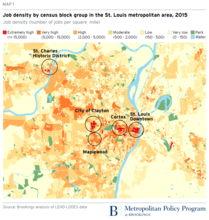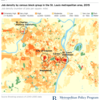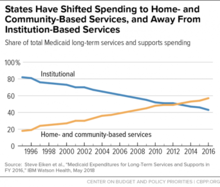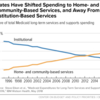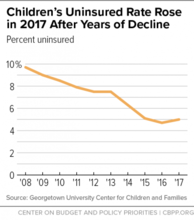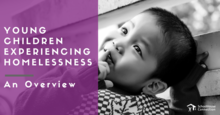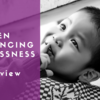0
Publication
Community:
Dec 1, 2018
With collectively more than 100 years of policy expertise and values-based leadership between us, Ascend at the Aspen Institute and the Housing Opportunity and Services Together initiative at the Urban Institute partnered to develop a set of recommendations on how to harness assisted housing and public-private housing partnerships for better outcomes for families.
Authored by: The Urban Institute and ASCEND: The Aspen Institute
Topics: Dual-generation, Early childhood, Education, Family engagement, Health, Housing, Low-income, Place-based, Research, Stability
 Shared by Mica O'Brien
Shared by Mica O'Brien
Mica O'Brien posted a
on Dec 6, 2018
The Urban Institute and ASCEND: The Aspen Institute
With collectively more than 100 years of policy expertise and values-based leadership between us, Ascend at the Aspen Institute and the Housing Opportunity and Services Together initiative at the Urban Institute partnered to develop a set of recommendations on how to harness assisted housing and pub
0
Publication
Community:
Dec 6, 2018
The administration has proposed an expansion of the “public charge” rule that would make it more difficult for applicants whom officials deem likely to rely on public assistance to obtain lawful permanent residence (a “green card”) or a temporary visa. Among other changes, the rule would expand public charge determinations to include an applicant’s enrollment in the Medicaid program. Adding Medicaid to the list of public charge benefits that would be considered may force immigrants to choose between health insurance coverage and a future green card—with adverse consequences for parents and their children.
Authored by: Emily M. Johnston, Genevieve M. Kenney, and Jennifer M. Haley for The Urban Institute
Topics: Affordable Care Act, Health, Housing, Immigrants, Legislation & Policy, Medicaid / Medicare, Safety
 Shared by Mica O'Brien
Shared by Mica O'Brien
Mica O'Brien posted a
on Dec 6, 2018
Emily M. Johnston, Genevieve M. Kenney, and Jennifer M. Haley for The Urban Institute
The administration has proposed an expansion of the “public charge” rule that would make it more difficult for applicants whom officials deem likely to rely on public assistance to obtain lawful permanent residence (a “green card”) or a temporary visa.
0
Publication
Community:
Dec 6, 2018
When we refer to people who are, or have been, in contact with the criminal justice system as “felons,” “offenders,” “inmates,” or “convicts,” we define them by the worst act of their lives, creating a stigma that lingers long after they’ve paid their debt to society. If we are serious about removing barriers for people with felony convictions, we must change the words we use to describe them.
Authored by: Cameron Okeke and Nancy G. La Vigne for The Urban Institute
Topics: Criminal justice, Legislation & Policy, Racial inequalities
 Shared by Mica O'Brien
Shared by Mica O'Brien
Mica O'Brien posted a
on Dec 6, 2018
Cameron Okeke and Nancy G. La Vigne for The Urban Institute
When we refer to people who are, or have been, in contact with the criminal justice system as “felons,” “offenders,” “inmates,” or “convicts,” we define them by the worst act of their lives, creating a stigma that lingers long after they’ve paid their debt to society.
0
Publication
Community:
Nov 14, 2018
In collaboration with Project for Public Spaces (PPS), the National Main Street Center (NMSC), and others, the Bass Center will examine the place needs of people and businesses and use that knowledge to help public, private, and civic sectors leaders develop new approaches to creating and supporting concentrations of economic activity that drive inclusive economic growth. The Center is premised on the idea that these “economic districts” represent the geographies in which leaders can have the most transformative impact—where they can build local trust and understanding, experiment safely, show results early and often, and measure impact against a place-centered vision and goals.
Authored by: Jennifer S. Vey for The Brookings Institution
Topics: Community development, Low-income, Mobility, Partnerships, Place-based
 Shared by Mica O'Brien
Shared by Mica O'Brien
Mica O'Brien posted a
on Dec 5, 2018
Jennifer S. Vey for The Brookings Institution
In collaboration with Project for Public Spaces (PPS), the National Main Street Center (NMSC), and others, the Bass Center will examine the place needs of people and businesses and use that knowledge to help public, private, and civic sectors leaders develop new approaches to creating and supporting
0
Publication
Community:
Dec 5, 2018
The Tax Cuts and Jobs Act of 2017 provides a new incentive—centered around the deferral, reduction, and elimination of capital gains taxes—to spur private investments in low-income areas designated by states as Opportunity Zones. This provision is based heavily on the Investing in Opportunity Act (S. 1639) introduced by Senator Cory Booker (D-NJ) and Senator Tim Scott (R-SC). Given the significant interest among investors, it is possible that this new tax incentive could attract hundreds of billions of dollars in private capital, making this one of the largest economic development initiatives in U.S. history.
Authored by: Bruce Katz and Ken Gross
Topics: Community development, Funding, Legislation & Policy, Mobility, Place-based
 Shared by Mica O'Brien
Shared by Mica O'Brien
Mica O'Brien posted a
on Dec 5, 2018
The Tax Cuts and Jobs Act of 2017 provides a new incentive—centered around the deferral, reduction, and elimination of capital gains taxes—to spur private investments in low-income areas designated by states as Opportunity Zones.
0
Policy Brief
Community:
Dec 3, 2018
Some seniors and people with disabilities receiving home- and community-based services (HCBS) could lose their Medicaid eligibility and have to go into nursing homes to get needed care if Congress adjourns without extending “spousal impoverishment” protections that are set to expire on December 31.
Authored by: Judith Solomon for The Center on Budget and Policy Priorities
Topics: Affordable Care Act, Disabilities, Legislation & Policy, Medicaid / Medicare, Seniors
 Shared by Mica O'Brien
Shared by Mica O'Brien
Mica O'Brien posted a
on Dec 3, 2018
Judith Solomon for The Center on Budget and Policy Priorities
Some seniors and people with disabilities receiving home- and community-based services (HCBS) could lose their Medicaid eligibility and have to go into nursing homes to get needed care if Congress adjourns without extending “spousal impoverishment” protections that are set to expire on December 31.
0
Publication
Community:
Nov 30, 2018
The uninsured rate among children rose in 2017 from 4.7 percent to 5 percent, a new report from Georgetown University’s Center for Children and Families finds — the first increase since Georgetown began producing this annual report a decade ago.
Authored by: Jesse Cross-Call for Center on Budget and Policy Priorities
Topics: Affordable Care Act, Child welfare, Health, Low-income, Medicaid / Medicare, Research
 Shared by Mica O'Brien
Shared by Mica O'Brien
Mica O'Brien posted a
on Nov 30, 2018
Jesse Cross-Call for Center on Budget and Policy Priorities
The uninsured rate among children rose in 2017 from 4.7 percent to 5 percent, a new report from Georgetown University’s Center for Children and Families finds — the first increase since Georgetown began producing this annual report a decade ago.
0
Policy Brief
Community:
Nov 29, 2018
The Department of Housing and Urban Development (HUD) is giving state and local housing agencies more funds to help them carry out a promising new policy to enable families with Housing Choice Vouchers to move to higher-opportunity neighborhoods. Agencies must apply by December 31 to receive the funds.
Authored by: Will Fischer for The Center on Budget and Policy Priorities
Topics: Child welfare, Funding, Housing, Legislation & Policy, Low-income, Mobility
 Shared by Mica O'Brien
Shared by Mica O'Brien
Mica O'Brien posted a
on Nov 29, 2018
Will Fischer for The Center on Budget and Policy Priorities
The Department of Housing and Urban Development (HUD) is giving state and local housing agencies more funds to help them carry out a promising new policy to enable families with Housing Choice Vouchers to move to higher-opportunity neighborhoods.
0
Publication
Community:
Nov 28, 2018
Housing instability among families and children can be detrimental to child welfare, health, economic, and other outcomes. Policymakers and service providers in these fields should consider weaving housing into their approaches. Treating instability at its roots can relieve the trade-offs and stress that emerge when no decent housing is affordable. Evidence indicates that affordable housing can improve a range of outcomes for families and—in combination with short-term or long-term services—help providers tackle complex challenges head-on.
Authored by: Aaron Shroyer for The Urban Institute
Topics: Child welfare, Family engagement, Housing, Low-income, Stability, Supportive housing
 Shared by Mica O'Brien
Shared by Mica O'Brien
Mica O'Brien posted a
on Nov 29, 2018
Aaron Shroyer for The Urban Institute
Housing instability among families and children can be detrimental to child welfare, health, economic, and other outcomes. Policymakers and service providers in these fields should consider weaving housing into their approaches.
0
Policy Brief
Community:
Mar 26, 2018
This two-page fact sheet summarizes existing data on young children who are homeless and their families, including the impact of homelessness on health, development, early learning, and well-being.
Authored by: SchoolHouse Connection
Topics: Child welfare, Early childhood, Homelessness, Housing, Low-income
 Shared by Mica O'Brien
Shared by Mica O'Brien
Mica O'Brien posted a
on Nov 29, 2018
This two-page fact sheet summarizes existing data on young children who are homeless and their families, including the impact of homelessness on health, development, early learning, and well-being.
0
Publication
Community:
Nov 20, 2018
People with mental health disabilities are vastly overrepresented in the population of people who experience homelessness. Of the more than 550,000 people in America who experienced homelessness on a given night in 2017, 1 in 5 had a mental illness. The proportion of people experiencing chronic homelessness with mental health disabilities was even higher—nearly 1 in 3. Despite this fact, the reality is that most people with mental illness fortunately do not experience homelessness: While about 20 percent of all adults in the United States have a mental illness, less than two-tenths of 1 percent of people in the country experienced homelessness on a given night in 2017.
Authored by: Heidi Schultheis for Center for American Progress
Topics: Depression, Disabilities, Homelessness, Housing, Legislation & Policy, Low-income, Mental health, Partnerships, Preventative care, Stability, Substance abuse, Supportive housing
 Shared by Mica O'Brien
Shared by Mica O'Brien
Mica O'Brien posted a
on Nov 20, 2018
Heidi Schultheis for Center for American Progress
People with mental health disabilities are vastly overrepresented in the population of people who experience homelessness. Of the more than 550,000 people in America who experienced homelessness on a given night in 2017, 1 in 5 had a mental illness.
0
Publication
Community:
Resources and presentation slides
Authored by: Food Research & Action Center
Topics: Food insecurity, Housing, Immigrants, Legislation & Policy
 Shared by Mica O'Brien
Shared by Mica O'Brien
Mica O'Brien posted a
on Nov 15, 2018
Food Research & Action Center
Resources and presentation slides
0
Policy Brief
Community:
Nov 2, 2018
The new opioid legislation—the Substance Use-Disorder Prevention That Promotes Opioid Recovery and Treatment for Patients and Communities Act (the SUPPORT Act)—signed into law on October 24 includes targeted expansions in treatment, including provisions that provide funding or flexibility to states to expand access to treatment for substance use disorders (SUD), including opioid use disorder (OUD), and health care more generally in Medicaid and Medicare.
Authored by: Eva H. Allen and Lisa Clemans-Cope for The Urban Institute
Topics: Affordable Care Act, Health, Legislation & Policy, Low-income, Medicaid / Medicare, Safety, Substance abuse
 Shared by Mica O'Brien
Shared by Mica O'Brien
Mica O'Brien posted a
on Nov 5, 2018
Eva H. Allen and Lisa Clemans-Cope for The Urban Institute
The new opioid legislation—the Substance Use-Disorder Prevention That Promotes Opioid Recovery and Treatment for Patients and Communities Act (the SUPPORT Act)—signed into law on October 24 includes targeted expansions in treatment, including provisions that provide funding or flexibility to states
0
Policy Brief
Community:
Nov 5, 2018
The potential impacts of expanding the regulation known as “public charge” have yet to be fully understood, but experts anticipate that young children in immigrant families—more than 90 percent of them US citizens—could be disproportionately affected. The proposed rule could make it more difficult for noncitizens to obtain green cards or temporary visas by negatively weighing several factors during the immigration admissions process, including current or potential participation in safety net programs such as Medicaid and the Supplemental Nutrition Assistance Program.
Authored by: Erica Greenberg and Archana Pyati for The Urban Institute
Topics: Child welfare, Early childhood, Education, Food insecurity, Housing, Immigrants, Legislation & Policy, Low-income
 Shared by Mica O'Brien
Shared by Mica O'Brien
Mica O'Brien posted a
on Nov 5, 2018
Erica Greenberg and Archana Pyati for The Urban Institute
The potential impacts of expanding the regulation known as “public charge” have yet to be fully understood, but experts anticipate that young children in immigrant families—more than 90 percent of them US citizens—could be disproportionately affected.
0
Policy Brief
Community:
Nov 2, 2018
More than 56 million people live in communities that are classified as high opportunity areas. These neighborhoods often provide access to certain amenities or community attributes that are believed to increase economic mobility for their residents. However, they are also often encumbered by high costs of living and dense populations. As a result, the supply of affordable housing is unable to support the demand. In an effort to combat this, there has been an increased focus from research, policy and affordable housing groups on deconcentrating poverty and promoting affordable housing in high opportunity areas.
Authored by: Freddie Mac Multifamily: Duty to Serve
Topics: Education, Health, Housing, Low-income, Mobility, Safety
 Shared by Mica O'Brien
Shared by Mica O'Brien
Mica O'Brien posted a
on Nov 2, 2018
Freddie Mac Multifamily: Duty to Serve
More than 56 million people live in communities that are classified as high opportunity areas. These neighborhoods often provide access to certain amenities or community attributes that are believed to increase economic mobility for their residents.
0
Policy Brief
Community:
Nov 1, 2018
Colleges and higher education systems can make institutional policy changes to bolster the success of students who are parents and their families through intentional use of a two-generation approach. This brief focuses on traditional two-year and four-year baccalaureate pathways for students who are parents; it complements a brief released on policy solutions.
Authored by: Ascend: The Aspen Institute
Topics: Dual-generation, Education, Low-income, Partnerships, Post-secondary, Youth
 Shared by Mica O'Brien
Shared by Mica O'Brien
Mica O'Brien posted a
on Nov 1, 2018
Ascend: The Aspen Institute
Colleges and higher education systems can make institutional policy changes to bolster the success of students who are parents and their families through intentional use of a two-generation approach.
0
Policy Brief
Community:
Nov 1, 2018
There are opportunities for federal and state policies to better support postsecondary institutions in serving students who are parents and their families. Policymakers can incentivize partnerships, name students who are parents as special or target populations, and facilitate financial aid processes that address the needs of families. Where possible, policies can also encourage creative and innovative approaches to leveraging existing programs to facilitate access and successful completion for parenting students. These recommendations seek to promote policy changes that address the critical supports students raising children and their families need for successful completion: affordable and quality child care, financial aid, wraparound services, and workforce readiness.
Authored by: Ascend: The Aspen Institute
Topics: Dual-generation, Education, Legislation & Policy, Partnerships, Post-secondary, Research, Workforce development, Youth
 Shared by Mica O'Brien
Shared by Mica O'Brien
Mica O'Brien posted a
on Nov 1, 2018
Ascend: The Aspen Institute
There are opportunities for federal and state policies to better support postsecondary institutions in serving students who are parents and their families.
0
Policy Brief
Community:
It’s no secret that survivors of domestic and sexual violence make up a large percentage of the families and individuals who seek help from the homeless/housing services system. No one expects homeless/housing programs to become an extension of the victim services system. But the intersection between homelessness and domestic and sexual violence requires both systems to do their work with that reality in mind.
Authored by: National Alliance for Safe Housing
Topics: Child welfare, Domestic violence, Homelessness, Housing, Legislation & Policy, Partnerships, Safety
 Shared by Mica O'Brien
Shared by Mica O'Brien
Mica O'Brien posted a
on Nov 1, 2018
National Alliance for Safe Housing
It’s no secret that survivors of domestic and sexual violence make up a large percentage of the families and individuals who seek help from the homeless/housing services system. No one expects homeless/housing programs to become an extension of the victim services system.
0
Policy Brief
Community:
Oct 29, 2018
In this Focus on Unaccompanied Youth brief, we review data and information that help us answer the following
questions:
• What is the scale of youth homelessness?
• What do we know about unaccompanied youth who experience homelessness?
• What do we know about patterns of homelessness among unaccompanied youth?
• What do we know about youths’ risks for experiencing homelessness?
• What are the most significant gaps in available data and our current understanding of unaccompanied
youth who experience homelessness?
Authored by: U.S. Interagency Council on Homelessness
Topics: Data sharing, Homelessness, Housing, Low-income, Metrics, Research, Youth
 Shared by Mica O'Brien
Shared by Mica O'Brien
Mica O'Brien posted a
on Nov 1, 2018
U.S. Interagency Council on Homelessness
In this Focus on Unaccompanied Youth brief, we review data and information that help us answer the following
questions:
• What is the scale of youth homelessness?
• What do we know about unaccompanied youth who experience homelessness?
• What do we know about patterns of homelessness among unacc
0
Policy Brief
Community:
Oct 24, 2018
On Wednesday, October 24, President Trump signed into law bipartisan legislation, H.R. 6, the SUPPORT for Patients and Communities Act. This sweeping legislation contains many provisions that could help children, youth, and families experiencing homelessness who are impacted by the opioid crisis, as well as provisions to help all children and youth who experience trauma.
Authored by: SchoolHouse Connection
Topics: Child welfare, Dual-generation, Early childhood, Family engagement, Housing, Legislation & Policy, Low-income, Substance abuse, Supportive housing
 Shared by Mica O'Brien
Shared by Mica O'Brien
Mica O'Brien posted a
on Oct 31, 2018
On Wednesday, October 24, President Trump signed into law bipartisan legislation, H.R. 6, the SUPPORT for Patients and Communities Act.
0
Publication
Community:
Jan 1, 2018
More than 50 years after the passage of the Fair Housing Act, what would it take to meaningfully reduce residential segregation and/or to mitigate its negative consequences in the United States? In this volume, leading academics, practitioners, and policymakers grapple with this question, examining different aspects of the complex and deeply rooted problem of residential segregation and proposing concrete steps that could achieve meaningful change withing the next ten to fifteen years.
Authored by: Joint Center for Housing Studies of Harvard University
Topics: Community development, Legislation & Policy, Mobility, Place-based, Racial inequalities, Research
 Shared by Mica O'Brien
Shared by Mica O'Brien
Mica O'Brien posted a
on Oct 25, 2018
Joint Center for Housing Studies of Harvard University
More than 50 years after the passage of the Fair Housing Act, what would it take to meaningfully reduce residential segregation and/or to mitigate its negative consequences in the United States?
0
Policy Brief
Community:
Oct 9, 2018
This brief highlights evidence on nutrition supports for families with young children and proposes a policy-focused research agenda designed to address knowledge gaps in two areas: (1) understanding disparities in participation in nutrition supports and (2) assessing strategies to increase access to nutrition supports and reduce nutrition disparities.
Authored by: Mathematica
Topics: Child welfare, Dual-generation, Early childhood, Food insecurity, Low-income, Nutrition, Research
 Shared by Mica O'Brien
Shared by Mica O'Brien
Mica O'Brien posted a
on Oct 22, 2018
This brief highlights evidence on nutrition supports for families with young children and proposes a policy-focused research agenda designed to address knowledge gaps in two areas: (1) understanding disparities in participation in nutrition supports and (2) assessing strategies to increase access to
0
Policy Brief
Community:
Oct 9, 2018
This brief highlights evidence on income support policies, and associated work requirements, for families with young children and proposes a policy-focused research agenda designed to address knowledge gaps in two areas: (1) understanding disparities in participation in income supports and (2) assessing innovative strategies to reduce disparities in income supports.
Authored by: Mathematica
Topics: Legislation & Policy, Low-income, Research, Workforce development
 Shared by Mica O'Brien
Shared by Mica O'Brien
Mica O'Brien posted a
on Oct 22, 2018
This brief highlights evidence on income support policies, and associated work requirements, for families with young children and proposes a policy-focused research agenda designed to address knowledge gaps in two areas: (1) understanding disparities in participation in income supports and (2) asses
0
Policy Brief
Community:
Oct 9, 2018
This brief highlights evidence about early care and education (ECE) access and presents a policy-focused research agenda designed to fill knowledge gaps in three areas: (1) documenting disparities in access to and participation in ECE, (2) identifying and assessing innovations to reduce disparities, and (3) identifying and testing strategies to scale up effective ECE programs.
Authored by: Mathematica
Topics: Early childhood, Education, Legislation & Policy, Low-income, Research, School-readiness
 Shared by Mica O'Brien
Shared by Mica O'Brien
Mica O'Brien posted a
on Oct 22, 2018
This brief highlights evidence about early care and education (ECE) access and presents a policy-focused research agenda designed to fill knowledge gaps in three areas: (1) documenting disparities in access to and participation in ECE, (2) identifying and assessing innovations to reduce disparities,
0
Policy Brief
Community:
Oct 9, 2018
Research shows that the earliest years of life are a critical period of human development. Young children’s earliest relationships and experiences have a strong influence on brain development and future health and well-being. Young children’s foundational relationships and experiences occur in the context of families and communities. Yet, low-income families—especially families of color and rural families—often do not have access to the basic necessities and resources to foster the nurturing experiences and stimulating environments that young children need to thrive. What is needed are policies that support low-income families to provide stimulating and nurturing environments to promote children’s healthy physical, socialemotional, and cognitive development and their future success in school and life.
Authored by: Mathematica
Topics: Child welfare, Dual-generation, Early childhood, Low-income, Research
 Shared by Mica O'Brien
Shared by Mica O'Brien
Mica O'Brien posted a
on Oct 22, 2018
Research shows that the earliest years of life are a critical period of human development. Young children’s earliest relationships and experiences have a strong influence on brain development and future health and well-being.
